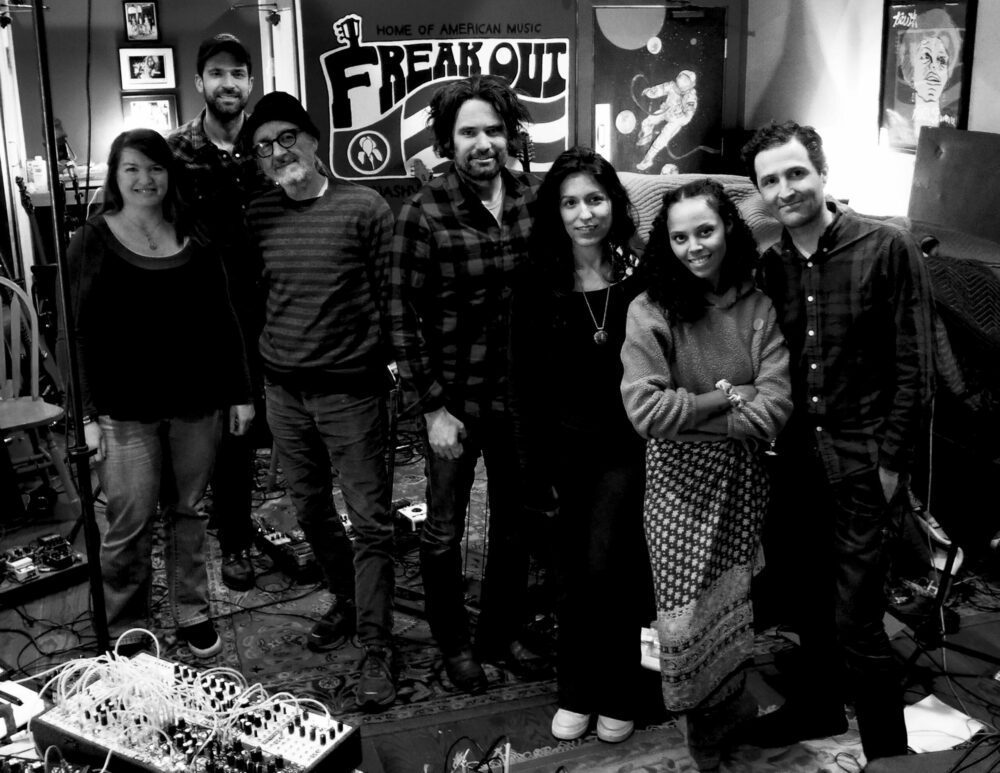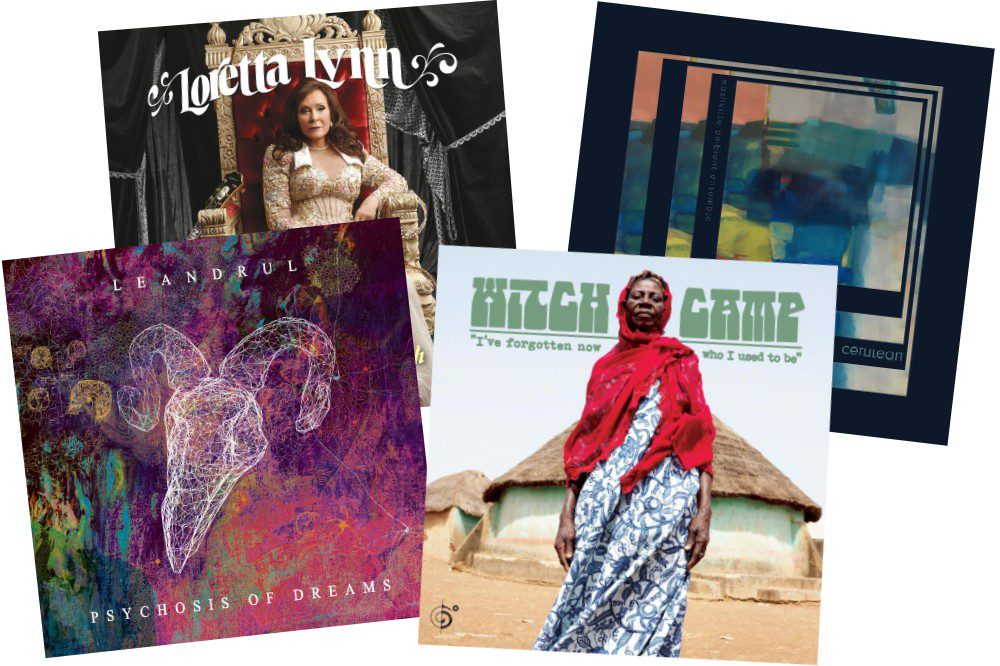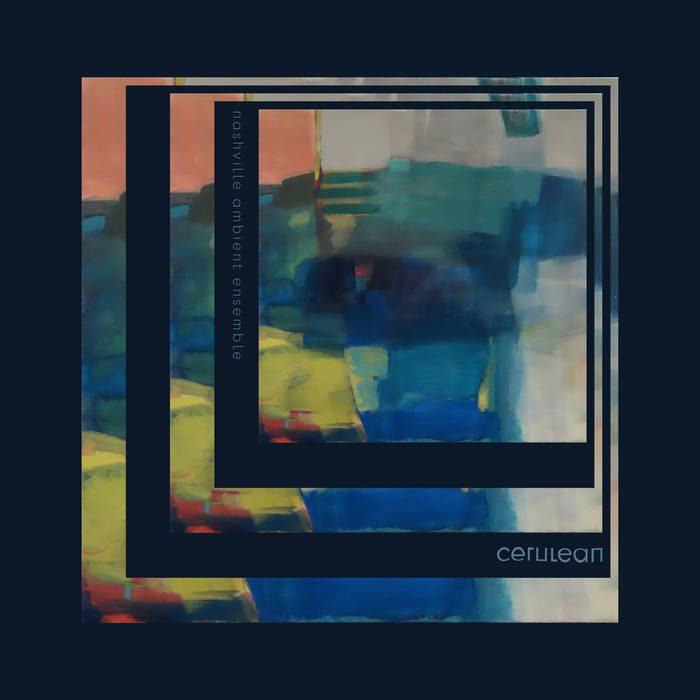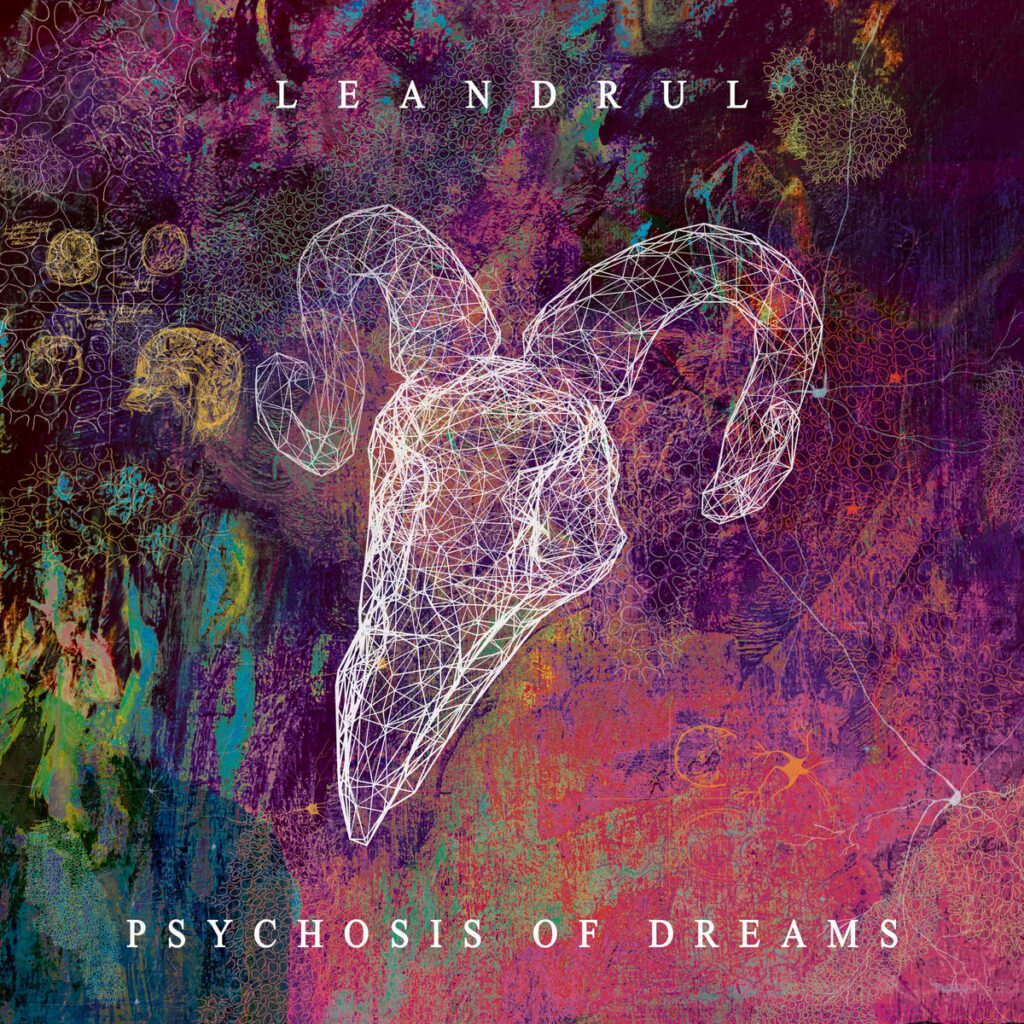Nashville Ambient Ensemble Embraces Space and Experimentation on Debut LP Cerulean


With their debut album Cerulean, Nashville Ambient Ensemble reimagines the art of experimental music. Founded by native Tennessean Michael Hix, who returned to Nashville in 2018 after honing his solo craft in New York’s experimental music scene, the group rapidly expanded into a septet, proving just how rich Nashville’s scene can be. “Moving back to Nashville, I was impressed by how people wanted to make music together,” Hix tells Audiofemme. “It reminded me what is so unique about making music in Nashville, and that is that it’s much more collaborative in nature.”
Hix quickly became a magnet for artists across the city seeking collaboration. After connecting with multi-instrumentalist and vocalist Diatom Deli through social media, the two teamed up for a live show at East Nashville bar The Crying Wolf in 2019, where journalist and guitarist Jack Silverman was in the audience and suggested to Hix that they collaborate. Hix’s longtime friend Timon Kaple was also in attendance and approached him with the same request, presenting the first sign of the community spirit in Music City.
As a self-professed fan of musical improvisation, Silverman says the Ensemble was a welcomed invitation to join forces with like-minded musicians in the experimental music world. “To me it’s about completely losing yourself, and that’s something I’ve always felt about instrumental music and improvisational music. It’s like playing in the purist sense,” Silverman explains, comparing the process of working with multiple musicians to that of walking a tight-rope. “Everyone has to really be patient and listen to other people. I felt like I was discovering a whole new world of musicians who I related to a lot more.”
Hix continued to build the multi-faceted group into a seven-piece ensemble where he serves as composer and plays synthesizer, with Silverman on baritone electric guitar and Kaple on electric guitar. Rounding out the band is Luke Schneider on pedal steel guitar, pianist Kim Rueger, Cynthia Cárdenas helming guitar synth and Deli providing vocals.

The Ensemble’s debut album, Cerulean, was an exercise in patience and experimentation. The septet only rehearsed twice before heading into the studio for a two-day recording session to create the album, which was released March 19th, 2021 on Centripetal Force Records. Hix provided rough outlines for each composition, along with loose chord structure that was left open to interpretation, inviting the musicians to play off one another’s strengths.
“We all work together very naturally,” Hix observes. “I think one of the things that we achieved as a group was the sense of space that we allowed for each other, listening to one another, along with that semi-improvised setting. That kind of environment that we set up allowed everyone’s personal contributions to be more effective and heard.”
Deli admits she felt a sense of trepidation when approaching the project and trying to find her voice within it. “I viewed it as a challenge for myself,” the self-described “loner” says. ”It felt right to really challenge myself and be a part of something that is out of my element.”
Her calming voice guides the listener through the album’s six meditative songs, offering gentle whispers and simple words that poured from her stream of consciousness, adding as much dimension to the music as the instruments themselves. “The voice is being used as an instrument where you’re hearing and feeling in the way that a guitar would,” she explains of the “subconscious-driven” verbiage that arose from “intently listening” to her peers. “Intuitively hearing how each part was coming in and out was a very ebb and flow feeling, and I was feeding off of that with the voice.”
“It’s almost like a symphony where there’s all these different movements of a piece,” Silverman describes of the project. “There’s this tentative exploring wonder of getting to know people. I think the fact that we were all in that moment [of] ’what are we doing?’ added a certain awe to it and magic.”
That magic is captured in the mellifluous arrangements that allow each musician to shine, Silverman harboring a connection to the title track that he composed and invited his fellow players to improvise on. “Cerulean to me is a shade of blue that is very striking, but very elusive,” he says. “There’s something about that shade and that color that is very mysterious and other-worldly to me.”
Meanwhile, Hix and Deli nod to “Coda” as a personal favorite, with Hix citing “Conversion” as one of the album’s most “effective” numbers in the way that it enables each musician to perform a solo in the span of its nearly 10-minute runtime. “It shows in the most comprehensive way what we were trying to do with the project, that balance between structure and improvisation,” Hix says.
Deli compares the album to a “musical jungle gym” that entices the listeners’ minds to play on the sounds while being open to the messages that apply to their own lives. “You’re just in this moment. There’s nothing else but this image that you’re watching and the world lights flickering on and off at the right moment of a sound coming in,” she shares. “The main message is be here and be here listening.”
“What it feels like to me as someone who participated in playing it is that you’re letting yourself be absorbed into a great whole and seeing what happens when you trust, let go and be in the moment to the point where you’ve lost all sense of self-consciousness. It’s almost like the music is playing you at that point,” Silverman analyzes. “What I’m trying to do is to find beauty in life and the universe and seeing how things connect. But there’s also a scariness in there. Life is intense; what I’m trying to do with my music a lot of times is process that. Sometimes there can be a darkness to it, too. There’s a lot of beauty and prettiness and chill melodies on Cerulean, but there’s also moments where it goes to slightly more mysterious and darker places. What I’m always trying to do is balance.”
Hix makes it a point to recognize the faint sound of laughter in the album’s closing track “Coda,” recorded during the final take of the sessions. It’s a sign of collective release from a group that leaned into trust and experimentation, knowing they conquered the journey with open hearts and pure intentions. Hix hopes listeners feel that same sense of liberation when they experience the music.
“I think everyone brought their whole selves and their whole lives to the music. I think it’s evident in their playing – it has a lot of heart in it. Their performances have a lot of power in them and it’s not just glossy, happy, bright feelings. The music has a lot of dimensions, and I think a lot of that is the result of everyone bringing their whole experience to the music,” Hix reflects. “My goal when making music is to create a space where someone can disconnect from the noise from their daily life and regain a sense of who they truly are. I turn to music for that, so when I’m making music, I’m doing that personally. I try to pass that on for the listener as well.”
Follow Nashville Ambient Ensemble on Instagram, Twitter, and Facebook for ongoing updates.






